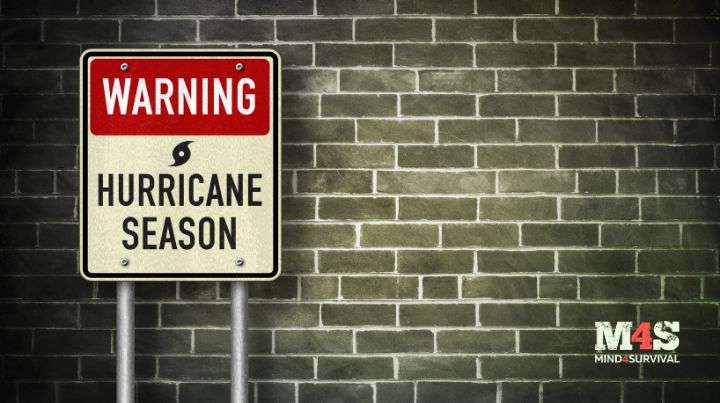Food
Include at least a week’s worth of food that does not need a lot of effort to prepare: energy bars, canned food, “just add water” meals (dehydrated or freeze-dried foods), crackers, etc. Include some comfort food such as chocolate, candy, and chips. Don’t forget the manual can opener!
Water
One gallon per person per day is the guideline.
First Aid
In addition to the basic first aid contents, personal prescriptions, eyeglasses, contact lenses, etc., it is also a good idea to include a pocket first aid manual.
Communications
Keep a battery-operated or crank weather radio, charged cell phone, and extra phone chargers.
Personal Hygiene
Make sure to stock plenty of toilet paper, trash bags, and moist towelettes.
Lighting, Fire, and Warmth
Flashlights with extra batteries, propane or other alternate fuel stove, and plenty of candles
Basic Tools
Think knives, multi-tools, wrenches, and pliers.
Entertainment
You will be happy to have some books, board games, cards, and toys.
Documents
Keep copies of your important papers, such as personal identification, insurance policies, and bank records, in a waterproof container.
Cash
Keep some cold, hard cash on hand. Electronic payment machines often stop working during a power outage, and transactions are “cash only.”
Create an Emergency Plan
Before anything happens, plan what you will do in case you need to evacuate. Do you have family members out of the area with whom you can stay? Learn about available evacuation shelters in your area and whether they allow pets if you have them.
Refer to a map of your vicinity and identify all possible routes out of your city.
Set up a communication plan with your family and friends so you can keep in touch during and after the hurricane.
Before the Hurricane
Here are some ideas on what to do before a hurricane is expected to make landfall:
Clean your bathtub, place a drain stop, and fill it with water. If you lose access to tap water, you can use bathtub water for hygiene and cleaning purposes.
Check with your apartment management on what they allow you to do to protect your unit, such as installing plywood to protect windows and sliding glass doors. Or, if they don’t allow it, use heavy-duty tape to create an “X” pattern on windows to minimize shattering.
Secure any outdoor patio furniture or bring them indoors, as they fly off and become dangerous during high winds.
If your area is prone to flooding, bring valuable items and electronic appliances to a higher floor, or at the very least, take them off the floor.
Read the full article here


